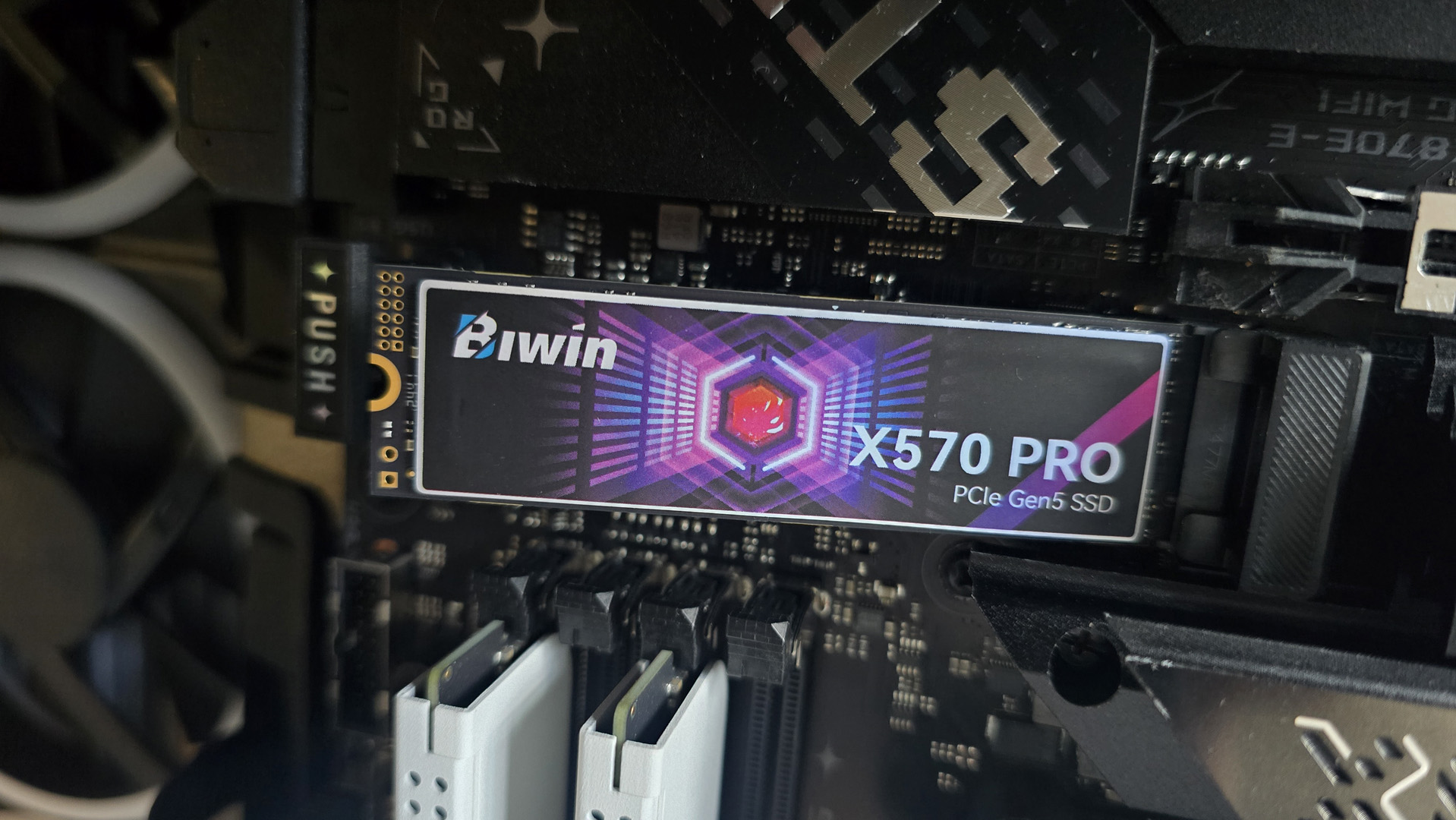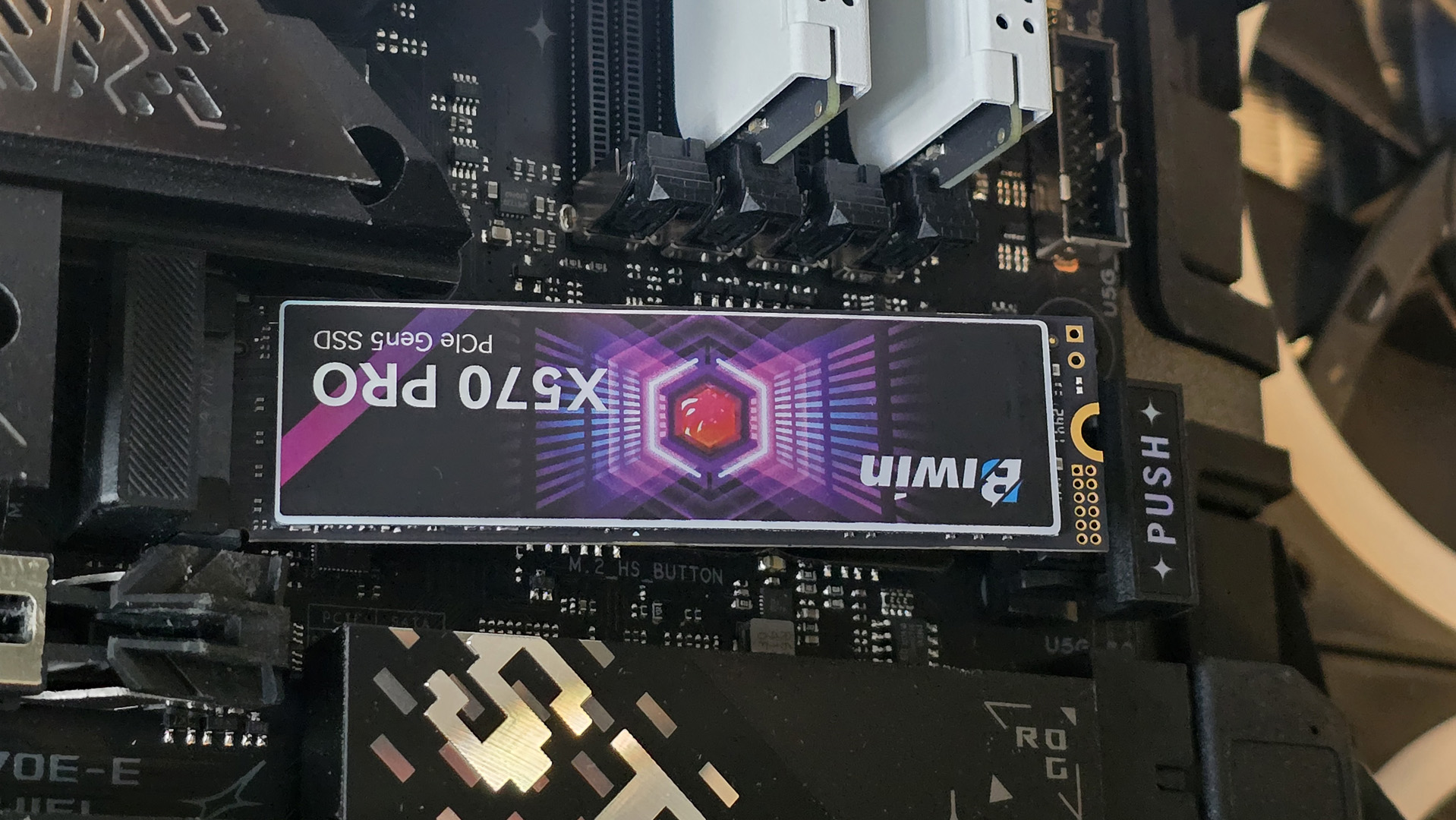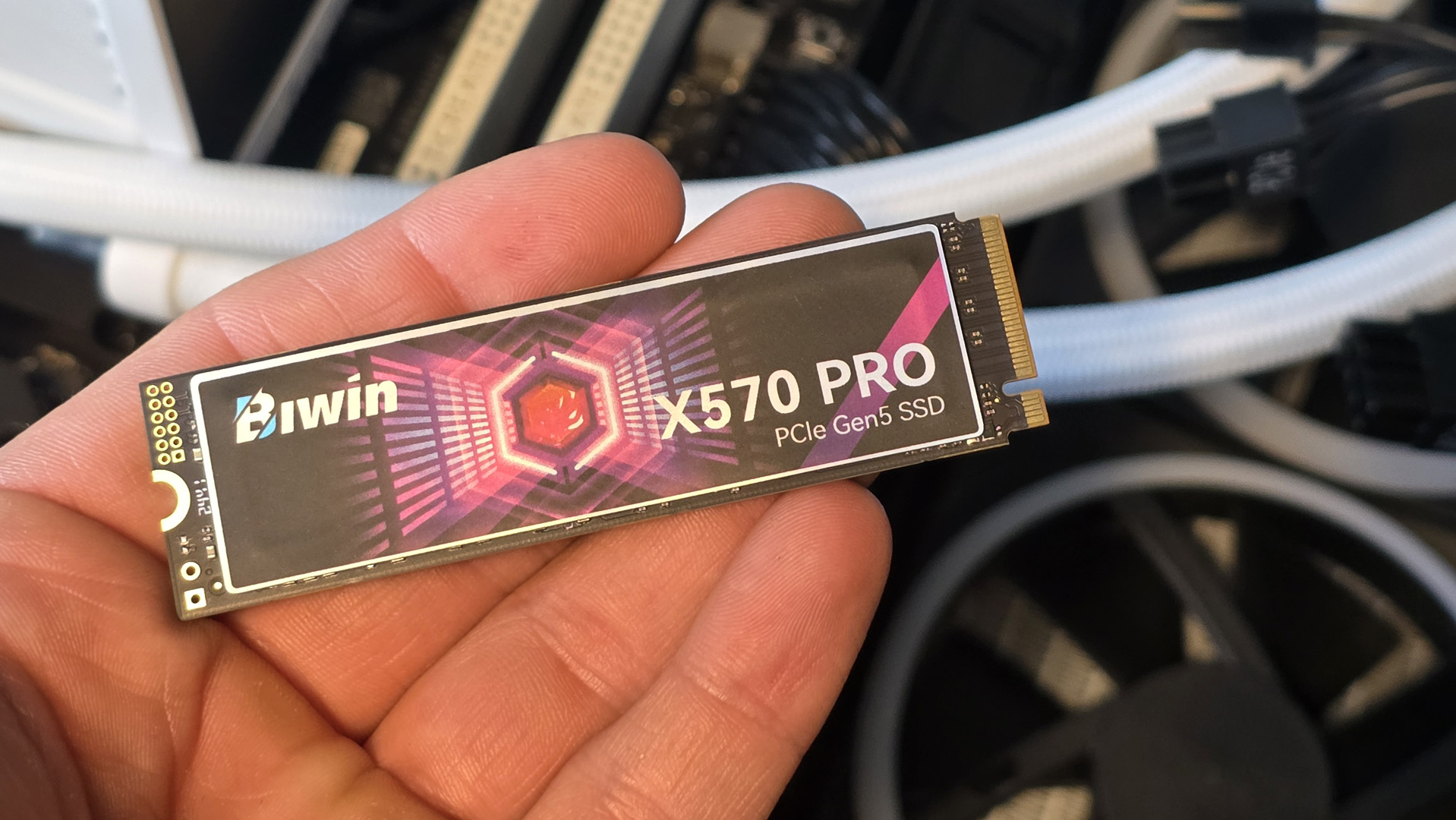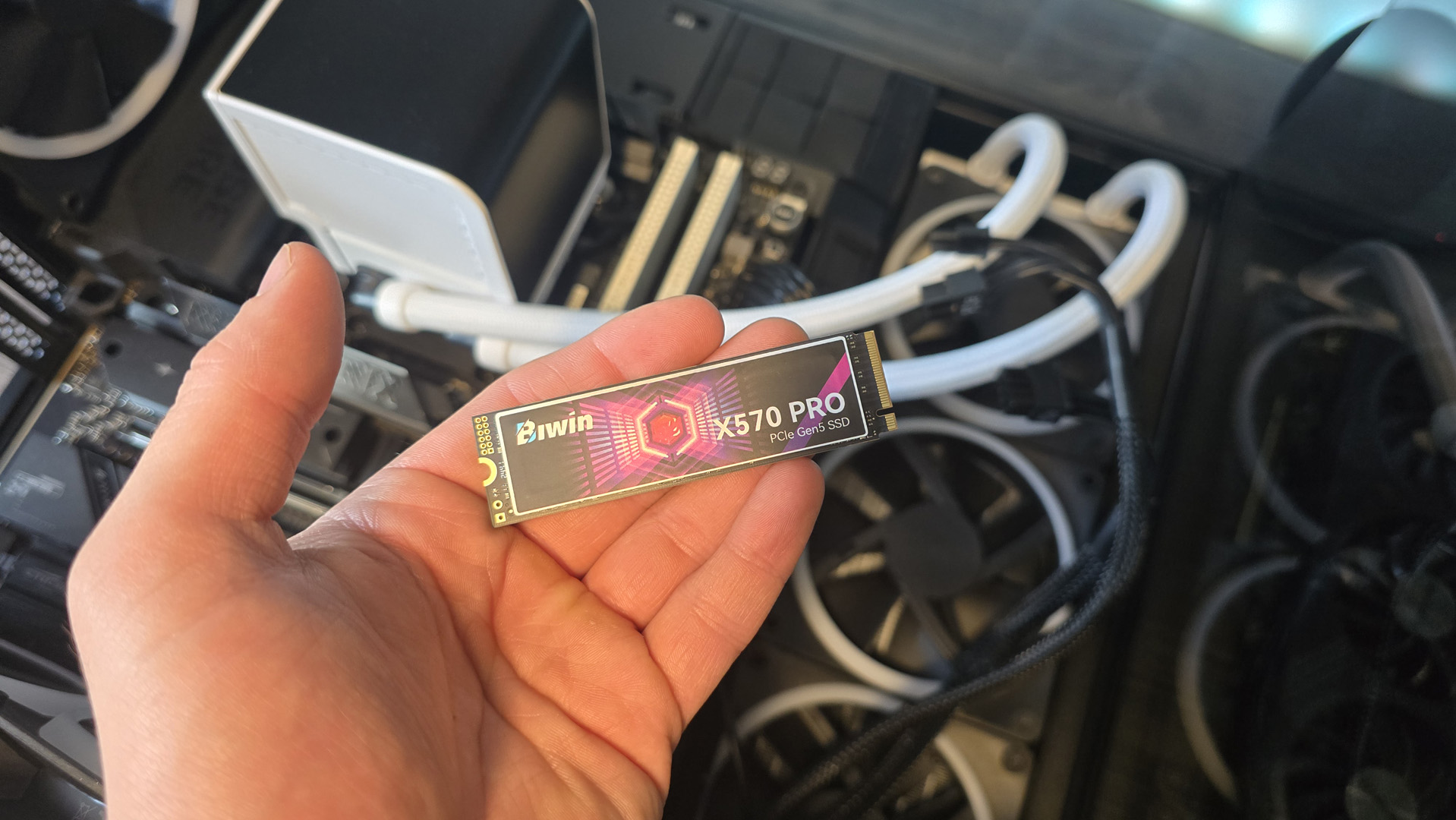
Taking the fight to Phison, the drive that may or may not exist.
If there’s one thing that never bodes well for our little PC gaming community, it’s a monopoly. That might sound a little odd given our humble hobby, but hear me out. We’ve seen it happen time and time again. One company dominates the market in a certain field for one, two, three years, and all of a sudden, progress stops, R&D falls off a cliff, and we start seeing overall bland products debut with minor incremental improvements gen-on-gen. Long gone are the groundbreaking revolutionary engineering step-ups, designed to keep that hungry competition at bay. It’s just 5% better efficiency, 10% more speed, 5% higher price. You get the gist.
Let’s be fair, there’s no arguing about it; Phison, for SSD controllers at least, has all the cards right now (the market dominance, that is). Its controller tech has dominated the PCIe space for some time, and mostly because it delivers exceptional performance across the board. It doesn’t matter if it’s last gen with the Crucial T500 or current gen with the stupidly efficient Corsair MP700 Elite; the majority of the best SSDs out there, right now, today, feature Phison controllers, certainly the PCIe 5.0 ones anyway. That’s just a fact.
Yet, that doesn’t mean there aren’t alternatives. Or stuff in the works about to disrupt the big boy’s flow. Silicon Motion is looking to do exactly that, and that’s where Biwin’s Black Opal X570 Pro PCIe 5.0 SSD comes into play.
At the X570’s heart lies Silicon Motion’s brand-new SM2508 controller. This is effectively an Arm Cortex chip built off the back of TSMC’s 6 nm EUV tech. It’s an eight-channel design that’s designed to run its NAND packages at around 3,600 MT/s or thereabouts. Silicon Motion announced the controller late in 2024, and it’s finally landed with us in its first consumer form, thanks to Biwin, who’ve paired it with some of Micron’s 232-layer TLC NAND, complete with a 2TB LPDDR4 cache, a “graphene” thermal pad, and, well, limited worldwide availability. Although more on that in a minute.
Capacity: 2 TB
Interface: PCIe 5.0 x4
Memory controller: Silicon Motion SM2508
Flash memory: Micron 232-Layer TLC NAND
Rated performance: 14,000 MB/s sustained read, 13,000 MB/s sustained write
Endurance: 1500 TBW
Warranty: Five years
Price: $TBA | £240
A little late to the party, then? Yes, technically, we’ve had PCIe 5.0 drives for a while now, but still, giving Phison something to think about is no bad thing, and it got me curious. It’s got a lot of competition, mind you, this drive, with the likes of Samsung’s 9100 Pro, with its Presto controller, and of course SSDs such as Crucial’s T705, with the now legendary Phison E26 seriously well cemented in the marketplace.
A lot’s been promised here too. Low power draw, high performance, good thermals, and an improved endurance rating (1,500 TBW for the 2 TB model here). It’s available in capacities ranging from 1 TB to 4 TB, plus you can grab one with or without a heatsink depending on your fancy. It’s slim-line, single-sided, and ready to butt heads with the big boys, no matter the configuration. At least, if you can get it.
And that’s the first major hurdle. To be blunt, right now availability is, well, tragic. You can pick one up officially in the UK. It’s out of stock in Australia. Has limited availability in Europe and is not even listed in the USA. Given the current tariff turmoil ongoing and the lack of shipments heading that way, plus the fact that Biwin is a Chinese company, I wouldn’t expect this to land in the states any time soon. Even with the current administration’s retraction of those 140% tariffs. UK pricing, for the most part, though, is very competitive; £240 for the 2 TB model I have on test puts it at around £0.12 per GB. For comparison, Crucial’s T705 slides in at £0.14, and Samsung’s latest 9100 Pro lands at £0.13. So, pretty middle-of-the-road then.
Here’s the thing, though. It’s kind of average. Certainly as far as PCIe 5.0 drives go. If you’re looking to break into a market that’s been so heavily fortified as the SSD one has become, you need something flashy, something punchy, something that blows the barn doors off and runs rampant across the farmyard screaming profanities at you while telling you to just buy the bloody thing. And the Black Opal doesn’t do that.
Sequential numbers are strong, don’t get me wrong. 14 GB/s on the read and 13 GB/s on the write are clean numbers. It beats out the 1 TB T705 I tested earlier this year nicely, although it does lose out to Samsung’s 9100 Pro (probably understandable that price point then). Equally random 4K performance is, again, fairly ok; 91 MB/s on the read and 304 MB/s on the write give it a reputable all-round score there, with the write being a bit meh, even compared to Crucial’s T700 from nearly three years ago.
✅ You’re in the UK: It’s available here, in stock, and has generally good all-round performance, with decent sequentials and alright 4K performance.
❌ You want something impressive: For a drive trying to break into a modern-day arena so combative as the SSD market, it just lacks any stand-out performance. That’s not Biwin’s fault, but sadly all that 6 nm hype was just that—hype.
Then there’s the Final Fantasy load testing, and oh boy, does this thing chug. Why, you ask? Well, it scores a positively cumbersome 8.301 seconds. The only drive I’ve tested recently that’s slower than that is WD’s 2230 small form factor SN770M. You know, the PCIe 4.0 one for Steam Deck, not good…
Then there’s the thermal performance, something both Silicon Motion and Biwin have shouted from the rooftops about in their marketing materials, and, well, unfortunately, it’s just average. Underneath a thick, meaty motherboard heatsink, it topped out at 74.0°C. That is cooler than most of the Phison E26 drives, sure, but not a smidge on the newer E321T found in the Corsair MP700 Elite and others.
So then, how’d you round out a review like this? Is the Black Opal X570 Pro interesting? No. Not really. It’s reliable, sure; 1,500 TBW is certainly not a bad endurance rating to have by your side, but as for Silicon Motion’s controller, it’s just not quite there, certainly not for PC gaming at the very least. There might be workloads that can better take advantage of it, but it lacks the punch that we’re looking for for a modern-day gaming drive. It’s neither particularly affordable nor is it available, and sadly, it just lacks the gusto to really make a dent in the overall SSD marketplace. It’s just average.






